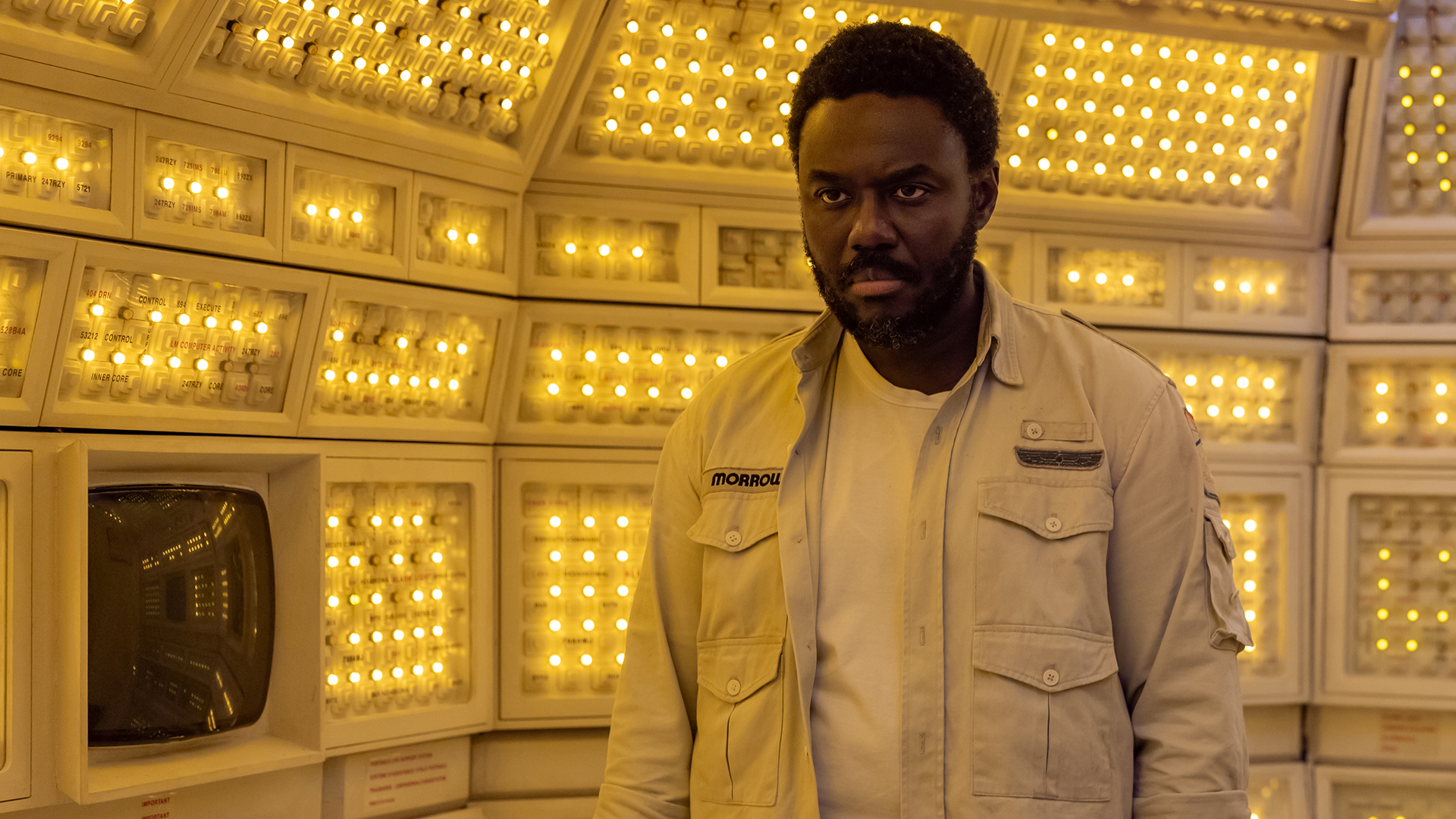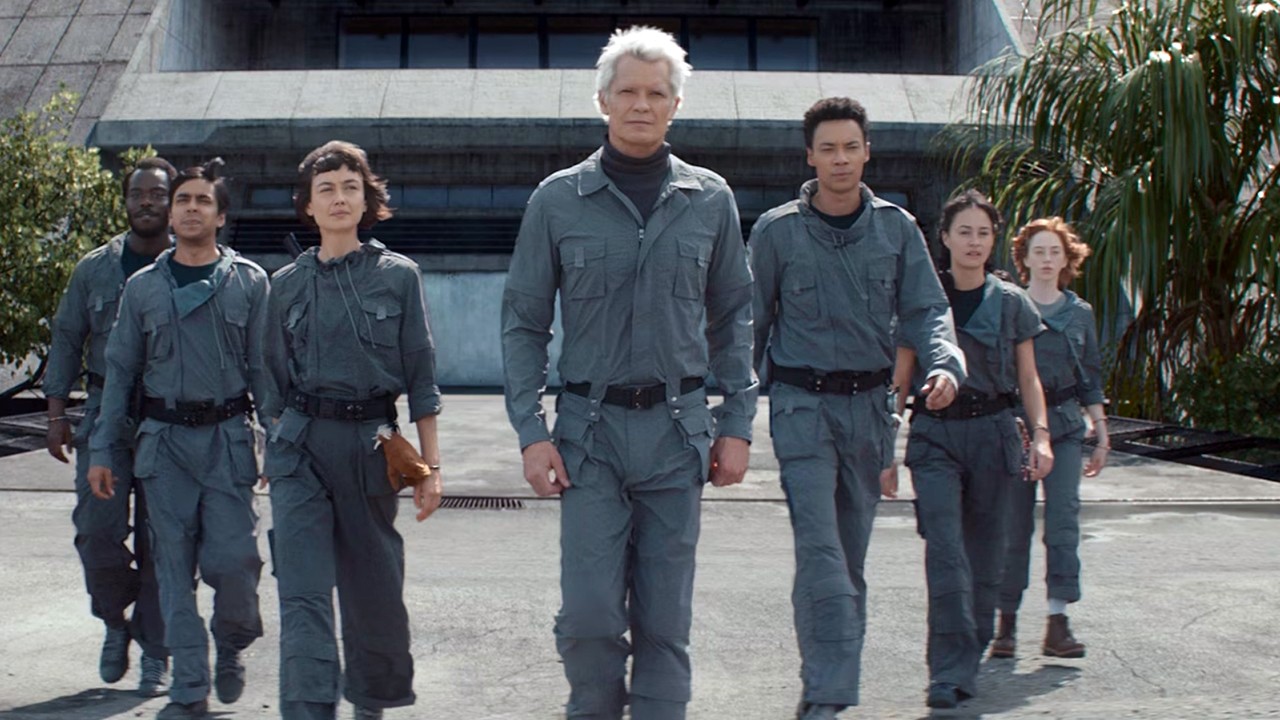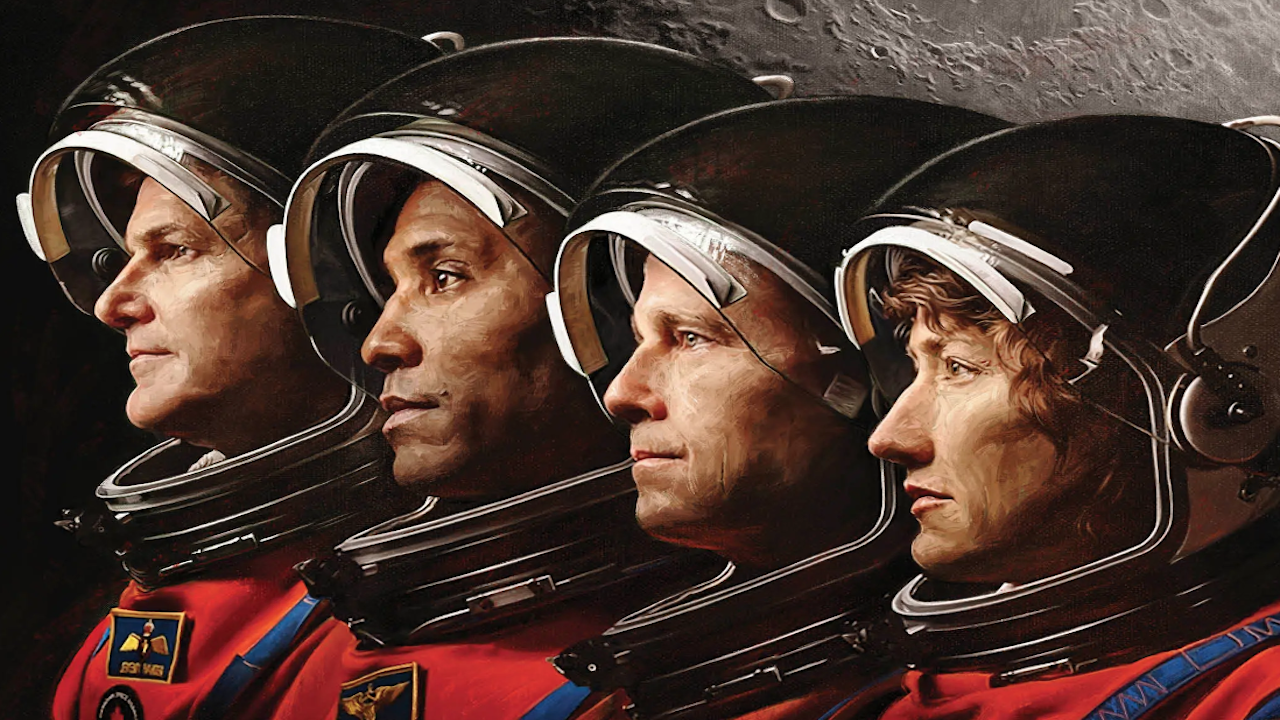'Alien: Earth' is an intelligent and thought-provoking bloodbath, and everything we ever wanted from an 'Alien' show (review)

Almost five years after its formal announcement, Alien: Earth – the franchise's first-ever TV series – has landed. Ahead of its two-episode premiere, we had the chance to watch all eight episodes of Season 1, and diehards.... You're in for a treat.
We're keeping this series review mostly spoiler-free… mostly, but if you want to go in completely sight unseen, then turn back now. Here's how to watch Alien: Earth.
Despite Alien: Romulus' big-screen success last year, longtime fans of the Xenomorph had plenty of reasons to be nervous as we approached the first-ever Alien TV show. Chief among them was the risk of, once again, revealing too much of the mythology behind the iconic creature and overexplaining mysteries that required none. That's where Ridley Scott's divisive prequels failed in many sci-fi aficionados' eyes. Then there's the issue with letting the Xenos loose on Earth years before Ellen Ripley faced the extraterrestrial horror — you'll remember she went to a lot of effort trying to keep those damn things away from our home planet.
Thankfully, the show hits the ground running, and any fears or qualms are quickly dissipated. Noah Hawley (Fargo, Legion) — series creator and writer & director across several episodes — clearly understood the assignment. Everything is anchored in the aesthetic of the first two entries, Alien and Aliens, but its scope opens up and expands upon that foundation, rather than wallowing in nostalgia. As thrilling and professionally made as it was, one could argue Fede Álvarez's Romulus often leaned too much on callbacks, references, and tried-and-true tricks. That ain't a problem here.
'Prequelisms' are also kept to a minimum beyond the obligatory elements needed to sell the 2120 setting (only two years before the original Alien movie). Weyland-Yutani plays a big role in the story, synthetics are common, and 'cassette futurism' permeates the advanced technology on display.
Earth, which seemingly hasn't been ravaged by climate change in this universe, is governed by five different corporations: Prodigy, Weyland-Yutani, Lynch, Dynamic, and Threshold. Even with familiar chunks of production design and the Xenomorph at the center of the show, Hawley instantly broadens the universe's horizons with two new additions to the lore: Cyborgs (augmented humans) and hybrids (synthetic bodies infused with human consciousness).
This approach also applies to the structure and tone. Whereas the first two episodes play out like a 'first movie' of sorts, Alien: Earth's first season doesn't fall into the common trap of splitting a movie into an eight-episode behemoth, which always leads to dreadful pacing issues. Yes, this is one long story that aims to run for a handful of seasons (if we had to guess), but its cuts to credits (and the sick needle drops that accompany them) seldom feel random. This project has been in the oven for several years, and the final result feels anything but rushed or weightless because Hawley and his collaborators had a grip on the TV format and the story they wanted to tell.
Breaking space news, the latest updates on rocket launches, skywatching events and more!
Much of the series's agility comes down to the sheer number of characters, each with sizable parts to play. Wendy (Sydney Chandler), Hermit (Alex Lawther), Boy Kavalier (Samuel Blenkin), Kirsh (Timothy Olyphant), and Morrow (Babou Ceesay) could all be treated as the show's unquestionable leads, and the scripts are constantly giving everyone something to do or a new way to push the main plot and subplots forward.
Many of the most interesting beats are firmly in spoiler territory, so you'll have to wait to see how it all comes together, but this is the rare show that's a constant balancing act that rarely falters.
The main human connection is Wendy, a child who's put into an adult synth body to save her from certain death. It's all part of bigger plans by Prodigy CEO Boy Kavalier, a 'villain' you'll love to hate, but the series never loses sight of her struggle of being asked to grow up quickly in a complex and rapidly changing world, especially one where literal monsters are real. She's at the center of a 'Lost Boys' group (Peter Pan references abound) that adds levity and innocent drama to the ensemble, but she manages to find a sweet spot between artificial maturity and childhood that puts her 'above' the more confused newcomers.
Lawther's Hermit, meanwhile, comes across as the most ethical human in this story; someone who's purely emotional and sort of naïve, especially as he's thrown into the middle of the action and reconnects with his long-lost sister. His dynamic with Chandler is the surprise 'dramatic engine' of the show, and it'll be interesting to see how it develops in future seasons (we're crossing our fingers here) as things get more complicated over at Prodigy's isolated tropical island.
Olyphant and Ceesay also face (and overcome) their own acting challenges with Kirsh and Morrow. Kirsh is a rapidly aging synthetic in a world that’s leaving him behind, stuck answering to his finicky and impatient boss (Kavalier). His allegiance is often a mystery. Olyphant's performance is the opposite of one-note, and there are bursts of humanity breaking through the ice-cold barrier of his AI at times. As for Ceesay, he's dealt the difficult hand of navigating the thin space between hybrids and synths as Morrow. This veteran cyborg has sacrificed too much of himself in the service of Weyland-Yutani, but his humanity remains, and Episode 5 gives the actor lots of room to play with his unique position.
Another big win for the show is that 'Alien' doesn't strictly mean 'Xenomorph' in this context. Hawley and his crew came up with a number of additional nasty extraterrestrial beings, adding some new body horror possibilities and delivering some scares in ways most viewers won't anticipate. Fede Álvarez and Noah Hawley prove Ridley Scott was wrong to say the Xenomorph was exhausted, but Alien: Earth doesn't put all its eggs in one basket and is better and more distressing for it. We're not exaggerating when we say this is the goriest entry in the sci-fi horror franchise so far.
Since we already know the regular Xenomorph, Hawley also decided it was silly to keep it in the dark, so the beast is loose as soon as the show begins, causing the WY-owned USCSS Maginot to crash-land right into Prodigy City. Its presence also extends beyond the double premiere, but not always like you'd expect, and if we had to nitpick, it'd be that the 'rubber suit' approach may look too obvious at times to the less nostalgic viewers. Still, it's a joy to watch the alien, practical or digital, tear through entire squads of soldiers.
Much of the show's uniqueness style from the way in which it was cut. Hawley's work is known for its energetic and offbeat editing, and while the 'Alien sandbox' might be more restrictive, he still finds ways to give it an audiovisual language of its own. Aforementioned needle drops aside, Jeff Russo's original score is unlike anything we've had before in this universe, while still evoking Jerry Goldsmith and James Horner's compositions in short bursts.
Alien: Earth is a loaded show full of big swings, but there's a familiar pulse to it and a sense of direction that prevents it from straying too far from its crowd-pleasing mission. After two conceptually confused big-screen prequels, it's hard to see it as anything but a major win. Those expecting a substantially brainier take on the material might not find everything they want here, but the Xenomorph's TV debut is much more than a riff on past stories.
Alien: Earth will premiere on Tuesday, August 12, with the first two episodes available to stream on Hulu at 8 pm ET and on the FX linear channel at 8 pm ET/PT, and on Disney+ internationally on August 13. A new episode will premiere each following Tuesday on Hulu beginning at 8 pm ET and on FX at 8 pm ET/PT.
Watch Alien: Earth when it launches on Hulu in the US. You can also watch the rest of the Alien and Predator franchises, including recently released hits like Prey and Alien: Romulus.
You can find the available plans below:
Hulu (with ads): $9.99/month or $99.99/year
Hulu (no ads): $18.99/month
If you're living in the UK, or anywhere else outside the US, then you won't have access to Hulu. Fortunately, you'll find Alien: Earth and the rest of the Alien franchise on Disney+.
Prices vary by country, but you can find the UK prices below for reference:
Standard (with ads): £4.99/month
Standard (no ads): £8.99/month or £89.90/year
Premium (4K): £12.99/month or £129.90/year
Fran Ruiz is our resident Star Wars guy. His hunger for movies and TV series is only matched by his love for video games. He got a BA of English Studies, focusing on English Literature, from the University of Malaga, in Spain, as well as a Master's Degree in English Studies, Multilingual and Intercultural Communication. On top of writing features and other longform articles for Space.com since 2021, he is a frequent collaborator of VG247 and other gaming sites. He also serves as associate editor over at Star Wars News Net and its sister site, Movie News Net.
You must confirm your public display name before commenting
Please logout and then login again, you will then be prompted to enter your display name.







